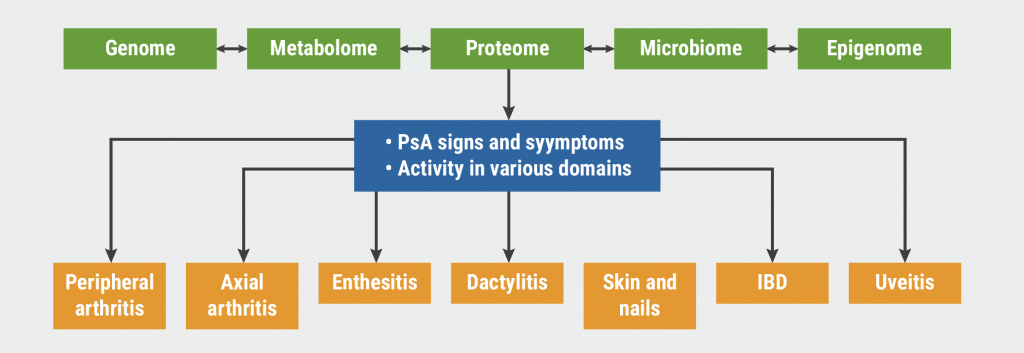A large international trial showed that SARS-CoV-2 mRNA vaccines lead to the development of antibodies in immunosuppressed patients without considerable side effects or induction of disease flares [2]. These early data were reassuring because they demonstrated that patients with psoriasis and psoriatic arthritis (PsA), even under treatment, will develop a high level of neutralising antibodies and/or protective antibodies against SARS-CoV-2 vaccination during therapy. This study showed no major difference between healthy adults and patients concerning adverse events after vaccination. Fever was more often seen in the healthy group (13.5%) compared with the patient group (0%).
EuroGuiDerm Guideline
The EuroGuiDerm Guideline for the systemic treatment of psoriasis vulgaris recommends vaccinating people with psoriatic disease with the approved vaccines [4]. “Until now, there is no scientific reason to deviate from this first recommendation,” argued Prof. Ulrich Mrowietz (University Medical Centre Schleswig-Holstein, Germany) [5].
The second guideline recommendation is that psoriasis treatment with any approved medication should not be interrupted during the phase of vaccination. However, immunosuppressive drugs may be shortly interrupted because the antibody response might be ameliorated by taking these drugs. According to currently available data, other drugs do not seem to cause any problem in combination with a COVID-19 vaccination.
Thirdly, the EuroGuiDerm Guideline stated that full protection from vaccination is not guaranteed for every person. Prof. Mrowietz advises recommending patients taking immunosuppressive drugs to continue with the common measures for disease prevention, such as wearing masks and keeping distance from other people, particularly those who have not been vaccinated yet. The last recommendation is that people with psoriasis should be receiving other vaccines, such as against influenza and pneumococci.
- Sharma O, et al. Front Immunol. 2020;11:585354.
- Polack FP, et al. N Engl J Med. 2020;383:2603–15.
- Anderson EJ, et al. N Engl J Med. 2020;383:2427–38.
- Living EuroGuiDerm Guideline for the systemic treatment of psoriasis vulgaris. July 2020.
- Mrowietz U. COVID-19: Vaccination against SARS-CoV-2 in people with psoriatic disease. 6th World Psoriasis & Psoriatic Arthritis Conference, 30 June–3 July 2021.
Copyright ©2021 Medicom Medical Publishers
Posted on
Previous Article
« Low COVID-19 risk for patients with psoriasis on biologic treatment Next Article
COVID-19 affects patients and care »
« Low COVID-19 risk for patients with psoriasis on biologic treatment Next Article
COVID-19 affects patients and care »
Related Articles

September 17, 2021
Psoriatic arthritis: Guidelines and best practice
© 2024 Medicom Medical Publishers. All rights reserved. Terms and Conditions | Privacy Policy

